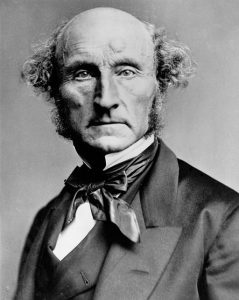
I found myself reading an alarming article by ‘Red Tory’ Philip Blond recently. The piece was a response to the book ‘The Politics of Virtue’, by John Milbank and Adrian Pabst, two academics who have been associated with the Red Tory/Blue Labour nexus that combines, to a greater or lesser degree depending on flavour, social conservatism with economic collectivism. I haven’t read the book, but I don’t think this is important to the points I raise here.
Blond identifies the purpose of Milbank and Pabst’s book as being ‘to challenge the ascendancy of liberalism and recommend a humane post-liberalism that can succeed it’. He criticises a reviewer of the book for failing to see a ‘link between the social liberalism of the left and the economic liberalism of the right’. Blond quotes approvingly from the book the claim that ‘liberalism brings about…an isolated individual abstracted from all social ties and duties’ and himself states:
Liberalism finds its quintessential form in a market state that enforces individualism. The market state must abolish anything that stands in the way of unconstrained freedom; it must eliminate solidarity or shared associations with other people, places, or things…Social liberalism (left-inspired) was necessary to take apart social solidarity in order to make possible its (right-inspired) economic correlate: economic liberalism.
Berlin, Jansen, Calvin, Smith, Hobbes and Rosseau all get a mention in Blond’s piece, but strangely there is no mention of John Stuart Mill, who would be regarded by many as the father of the modern political concept of liberalism, encapsulated in the form :
the only purpose for which power can be rightfully exercised over any member of a civilised community against his will is to prevent harm to others.
On this definition, it is not clear why liberalism should be judged guilty of the crimes Blond, and evidently Milbank and Pabst, accuse it of. In particular, this form makes it very easy to separate the roles of social and economic liberalism as currently practised.[1]
Liberalism as a principle allows the individual to freely seek and pursue his own version of ‘a good life’ both as an individual and as part of a collective or intersecting collectives to the extent that this does not impinge upon the ability of anyone else to do the same.[2] While it is true that this lays a necessary grounding for economic liberalism in that the latter invokes free exchanges of goods and services between autonomous individuals or groups, it is a fallacy to see the liberalising of society as inevitably leading to unrelieved economic atomisation. Just as there is nothing in Mill’s formulation that prevents individuals from forming groups that share ideas of the good life and expressing them, neither is there anything that prevents them gifting or sharing goods rather than exchanging them, as long as by doing any of these things they are not reducing the rights of others to do this or anything else.
Liberalism as defined by Mill is an eminently practical position to take on two counts. Firstly it establishes a mutual compact which maximises everyone’s enjoyment of life within the minimisation of physical conflict. Secondly it gives us the best chance to experiment with different modes of life, and given an unknowable future thus minimises the chance of catastrophic error.
Economic liberalism as currently practised is problematic because it is a narrow subset of rights within liberalism that have been over-promoted because of the misapplication of a highly abstract model to the real world and because of the self-perpetuating power these rights bestow on a small social group. This over-promotion takes us away from Mill’s precept by ignoring the limits of individual human cognition and by separating economic relations from other relations between humans whilst frequently giving economic relations primacy. There is a hint that Blond partially recognises this, when he refers to ‘extreme liberalism’. But he does not elaborate on what distinguishes this extreme variety from the ordinary liberalism that he also rejects. This is a significant error, since what is bad in its extreme need not be so in itself.
Blond’s fallacious view of liberalism as a whole leads him to an alarming and decidedly illiberal conclusion that he evidently believes is shared by Milbank and Pabst. ‘Only Christianity or some other loving monotheism can…explain why reality would care for human beings, why it would disclose their proper path or ‘ought’ to them’, he says. (I’m not sure, but given Blond’s comments about the ‘cultural danger with mass Islamic migration and the threat this poses to societies sprung from Christendom’ I strongly suspect the ‘loving’ adjective here is intended to exclude Islam from consideration here.) The required catalyst for his desired awakening is ‘a charismatic leader that can personify all that might be good in post-liberalism’.
It seems that the solution to the modern world’s problems under liberalism is something that sounds very much like a theocratic dictatorship.
[1] What Blond refers to as ‘social liberalism’ might better be called ‘social liberalisation’ to distinguish liberalism that has a concern for positive as well as negative freedom from the general relaxing of social constraints on the individual. The latter seems to be his concern here.
[2] Of course, this is only a starting point. Structures of government, law and the judiciary are required to negotiate the inevitable conflicts, perceived and real, frequently involved in the application of the principle.
2 replies on “Post-Liberalism as Illiberalism”
This is a silly piece.
Why do you say that?